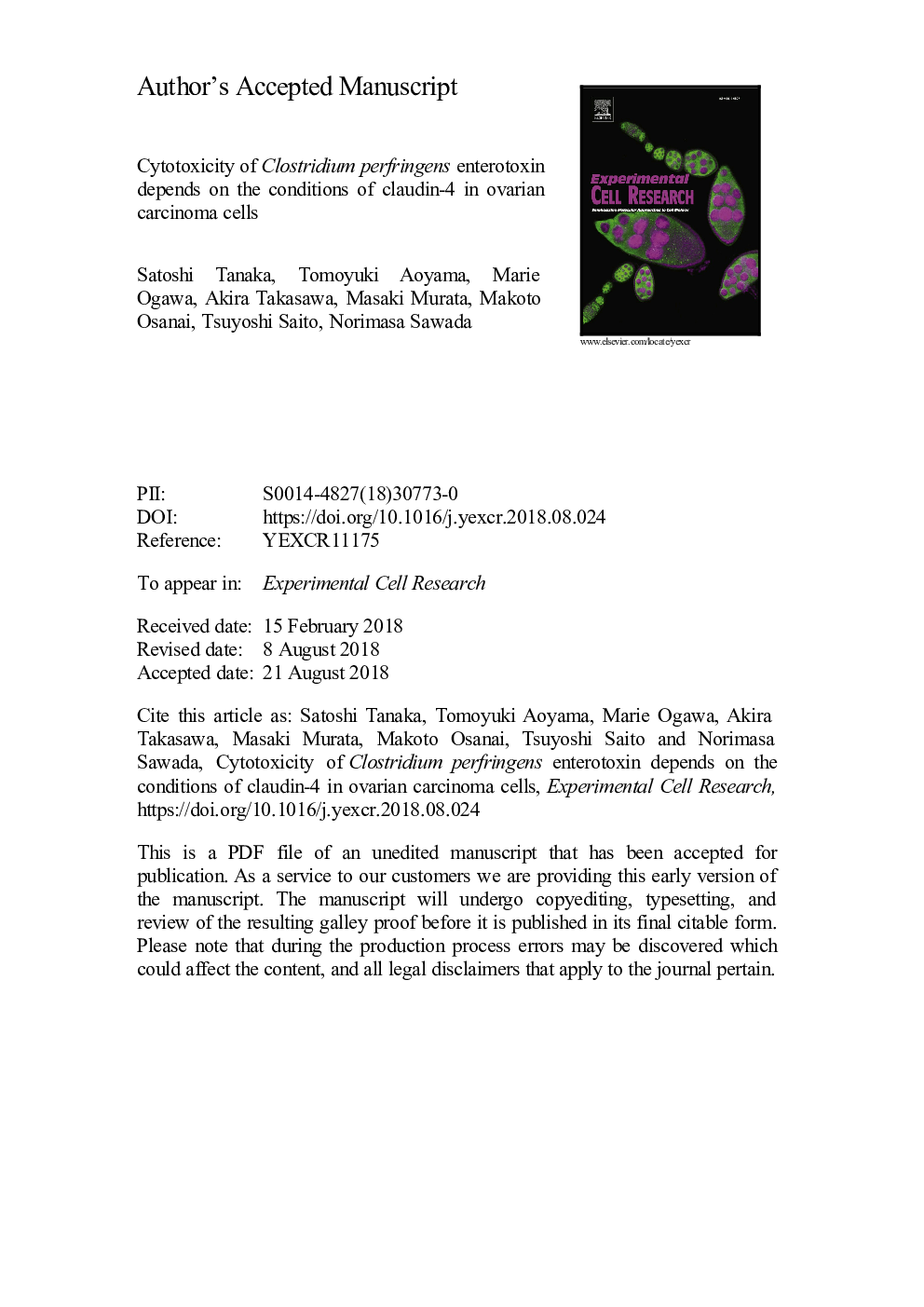| Article ID | Journal | Published Year | Pages | File Type |
|---|---|---|---|---|
| 8962178 | Experimental Cell Research | 2018 | 38 Pages |
Abstract
Currently, Clostridium perfringens enterotoxin (CPE) is being investigated as an anti-cancer drug for tumors expressing the tight junction (TJ) transmembrane proteins claudin-3 and/or claudin-4. However, the optimal conditions for CPE cytotoxicity are still unclear. Our objectives were to determine the optimal conditions for CPE as an anti-cancer drug for treating ovarian cancer in vitro and in vivo. In our experiments, cells at low culture density showed higher sensitivity to CPE, suggesting that claudins at TJs were poorly accessible to CPE compared with those at the edge of cell colonies. Ovarian cancer cells cultured under calcium-depleted pretreatment conditions to disrupt TJs and to knock-down TJ proteins and E-cadherin production altered CPE cytotoxicity, which was mainly dependent on claudin-4 expression. These results suggest that the condition of claudin-4 at the cell surface is important for CPE cytotoxicity. Our in vivo experiments showed that a high dose of CPE is required for the effective treatment of peritoneal dissemination of ovarian cancer cells. Here, we suggest that the accessibility of CPE to claudins is important for its cytotoxicity and depends on the conditions of claudin-4 in vitro. In addition, E-cadherin expression in ovarian cancer cells affects the efficiency of CPE in vivo.
Related Topics
Life Sciences
Biochemistry, Genetics and Molecular Biology
Cancer Research
Authors
Satoshi Tanaka, Tomoyuki Aoyama, Marie Ogawa, Akira Takasawa, Masaki Murata, Makoto Osanai, Tsuyoshi Saito, Norimasa Sawada,
